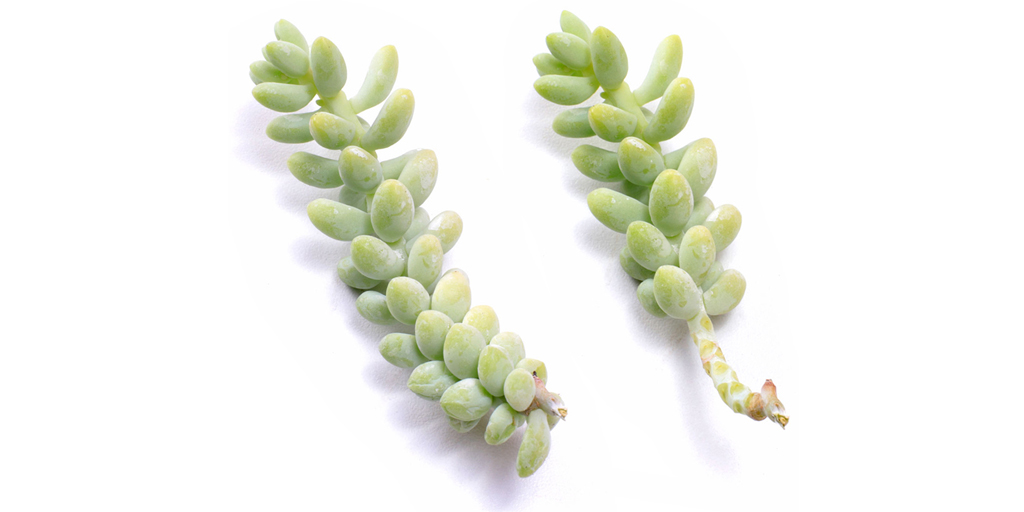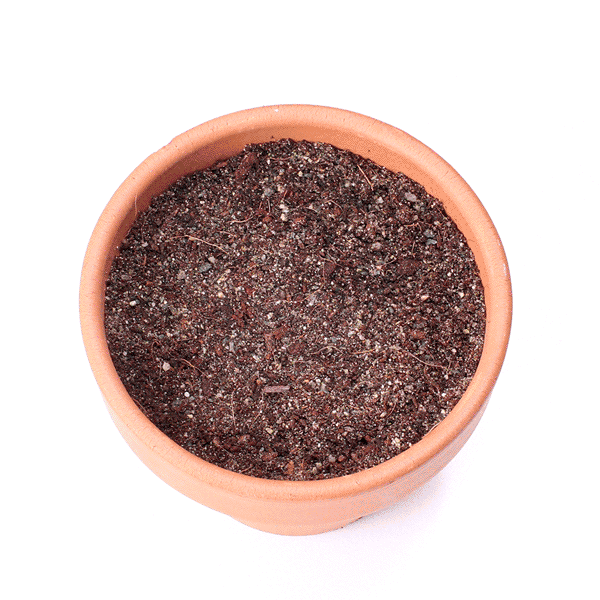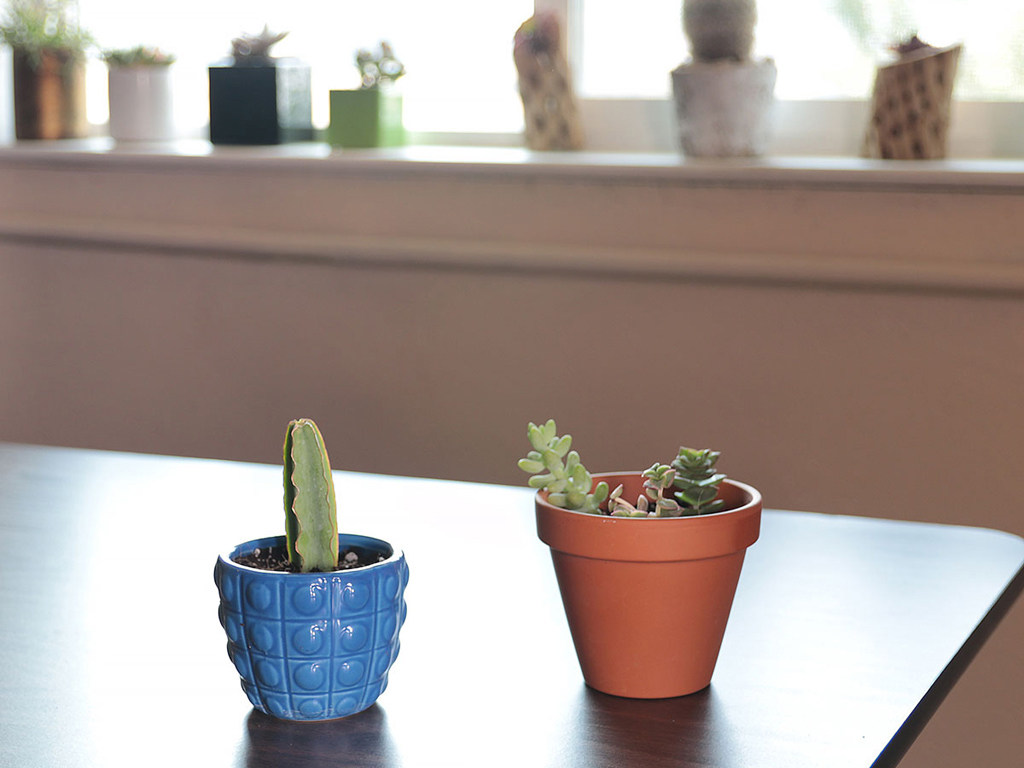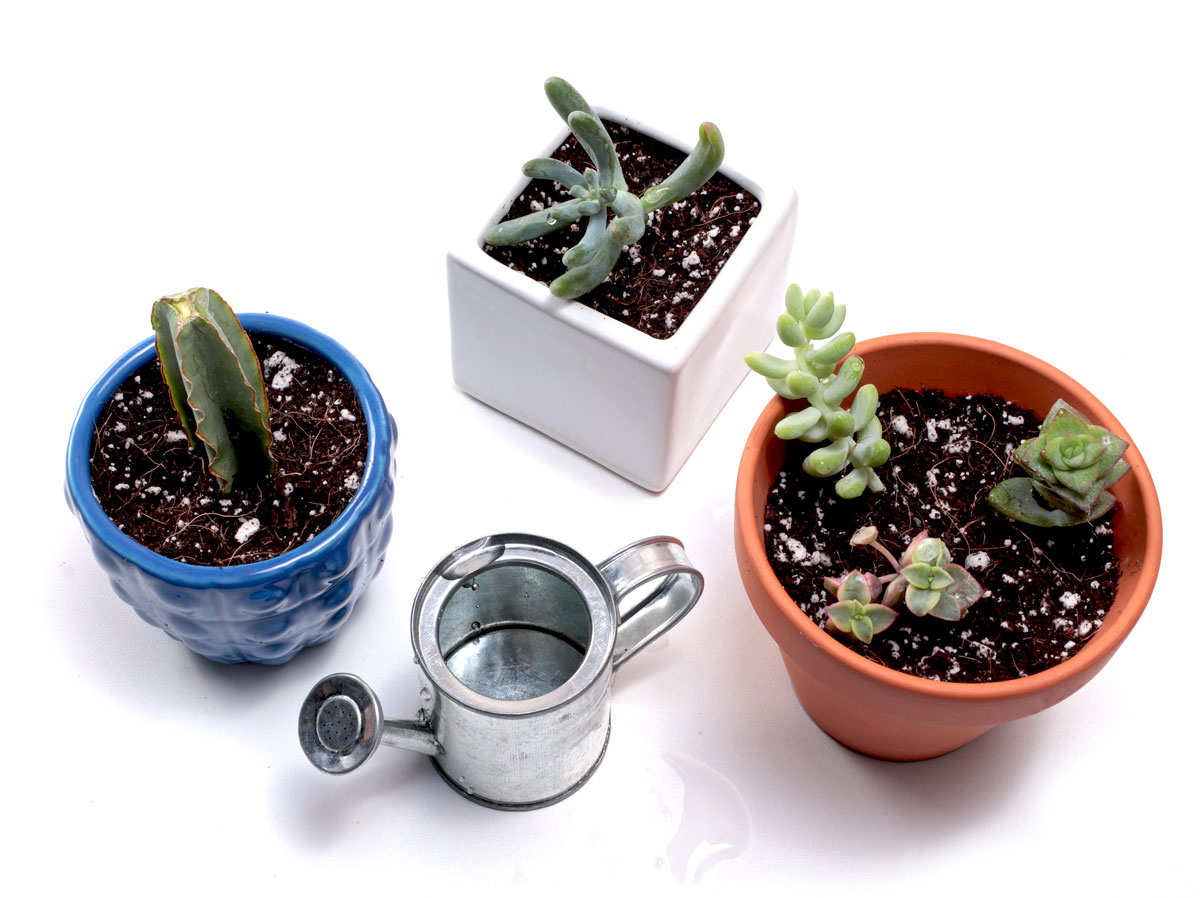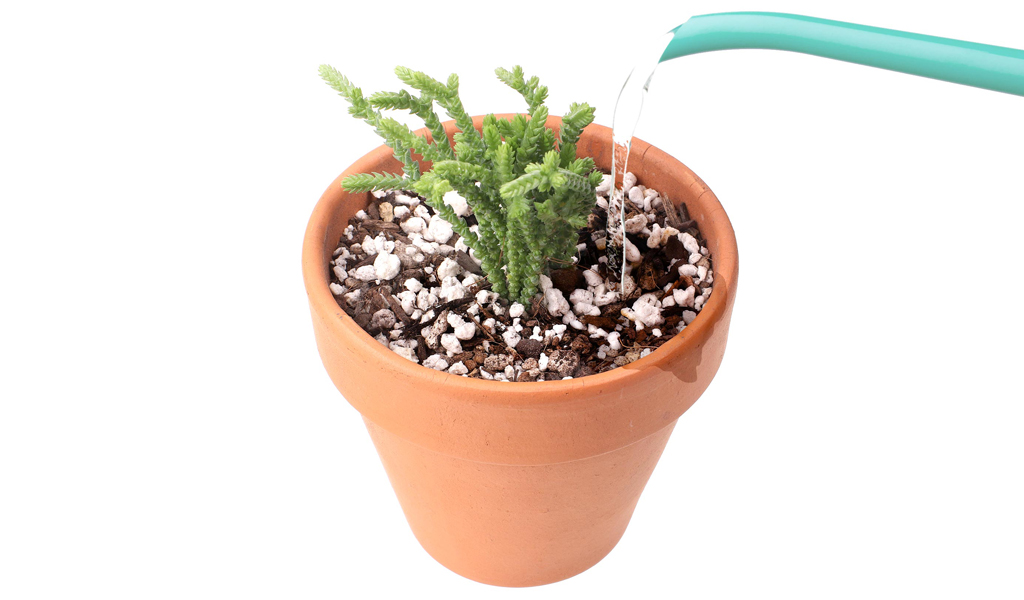Care Guides
Planting Succulent Cuttings: A Visual Guide
Can't get enough succulents? Fortunately, these adorable plants are super easy to propagate from cuttings!
Succulent cuttings are often used in temporary arrangements, but they can also re-grow into rooted, long-lasting plants. Propagation is an affordable, easy way to multiply your succulent collection or re-use decorative cuttings after an event. Even with proper diligence, some cuttings may not take root, but this guide can greatly increase the rate of success.
Propagating Stem Cuttings
1. Prepare the Pot
You can grow cuttings in a temporary pot while they establish roots or plant them directly in a permanent container. Either way, you'll want a pot that has a drainage hole and is large enough to leave 2"-3" of space around each cutting.
Fill the container with a gritty, well-draining soil to protect your succulents from standing water and root rot. Most garden centers sell a cactus/succulent potting soil. You can also make your own with 3 parts potting soil, 2 parts coarse, salt-free sand, and 1 part perlite or pumice. Ultimate Guide to Succulent Soil
2. Plant the Cuttings
Plant the cut end of a stem 1"-2" into the soil. If the succulent has leaves, you may need to remove some to expose the bottom section of stem. The lowest leaves should sit just above the soil without touching it. Compress the soil lightly to get the cutting to stand upright.
| For stemmed succulents, remove any leaves necessary to expose 1"-2" of stem for planting |
| Place rosette cuttings as-is on top of soil. |
3. Pick the Right Location
Pick a location for your young succulents that gets bright, indirect light (not full, outdoor sun) and plenty of airflow. Cuttings need sunlight to grow new roots, but they can dry out quickly in direct sun. Good airflow helps prevent infestations of mealy bugs and gnats on indoor succulents.
4. Water
Unlike mature succulents, cuttings will need regular moisture until they can grow roots. Water frequently enough to keep the soil from drying out, but not so often that you see standing water. Depending on temperature and humidity, actual frequency is usually 2-4 times per week.
5. Care for Rooted Succulents
After 4-6 weeks, a very gentle pull will tell you if a cutting has rooted. To care for rooted succulents, transition to deeper, less frequent watering. Only water once the soil has fully dried, about 2-4 times per month. Re-pot, if desired, and gradually move the succulent to its preferred light conditions. Take 1-2 weeks to increase light exposure, giving the plant time to adapt. Continue caring for your succulent and watch for above-ground growth in the following months.
FAQs
What about propagating leaf cuttings?
Though usually more challenging, some soft succulents will re-root from leaves. Be sure to select thick, healthy leaves near the base. Remove the leaves and let them dry indoors or in the shade for 4-7 days. Once the cut end is calloused, plant the leaves upright, cut side down in light, gritty soil. Water as you would a stem cutting and watch for new growth in the following months.
Can I plant cuttings outdoors?
Rooting cuttings outdoors is challenging because environmental conditions are more variable. If you live in the right hardiness zone for the succulent, you can try planting a cutting outdoors during the growing season. Pick a location that receives partial or indirect sun. Follow the guidelines above and pay extra attention to moisture levels. Be aware that some cuttings might not survive.
Do I need to fertilize?
Fertilizer is not necessary, and too much can burn young or unrooted succulents. Mature, rooted succulents can tolerate low-Nitrogen, slow-release fertilizer in the spring growing season.
Should I apply a rooting hormone?
Not necessary. Succulents have a high concentration of meristem cells and do not need supplemental hormones to re-root.
Where can I find more information?
Mountain Crest Gardens has a large collection of books on propagating, cultivating, and using succulents. For more info on propagation, we recommend:

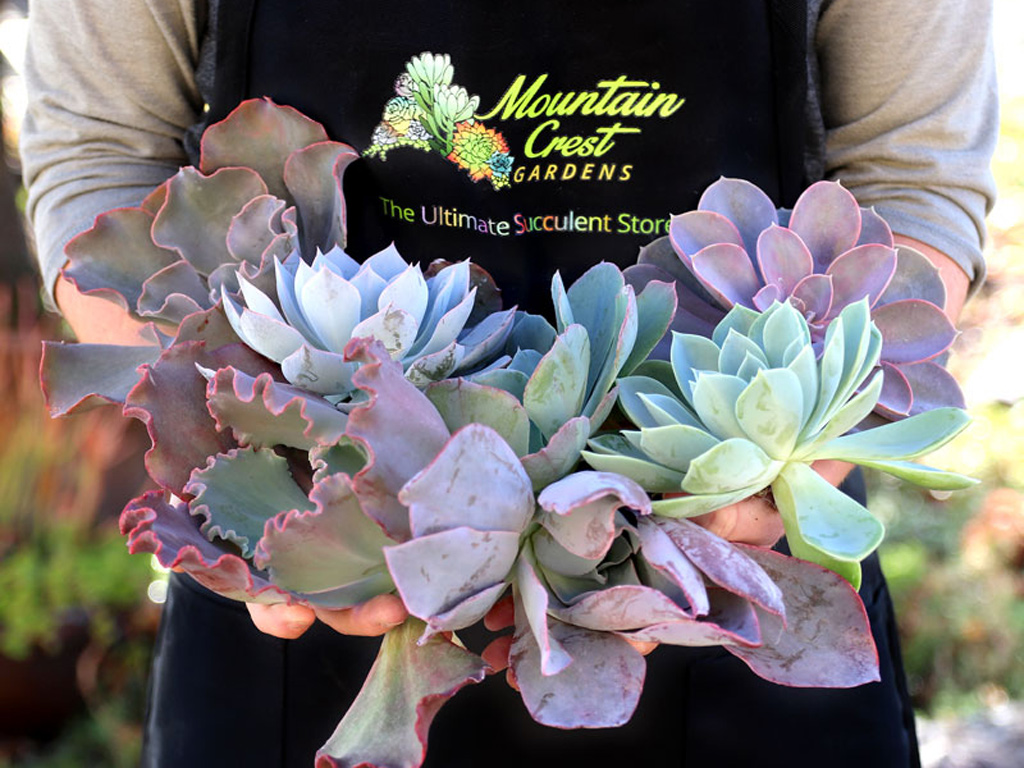
 Play Video
Play Video 
